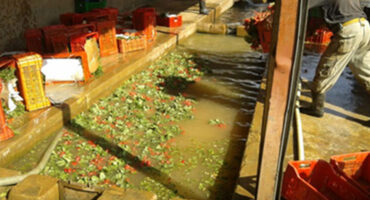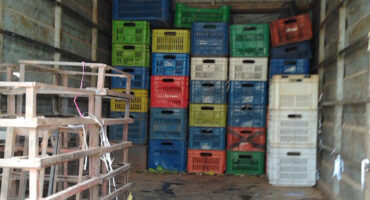Food labels review for entry to the US, EU and UK markets.
Prevalence of antimicrobial – resistant Escherichia coli from raw vegetables in Lebanon
Sunday, 08 September 2019
by Dr Faour Klingbeil
Fresh produce has been implicated in a number of documented outbreaks of foodborne illness caused by bacteria, viruses, and parasites. Shiga toxin-producing Escherichia coli (STEC) have been detected on vegetables, raising concerns about the prevalence of E. coli contamination in produce, which can take place at various points from farm to fork. The prevalence of antimicrobial-resistant E. coli and potential transmission from soils and in the animal production environment to fresh produce at harvest has been documented, as has the further flow of resistance from fresh produce bacteria via gene transfer to enterobacterial strains in humans.The most common route for fresh produce contamination is at the pre-harvest stage, when microorganisms from animal feces, contaminated irrigation water, and wild and domestic animals can be deposited in crops. Even though foodborne disease outbreaks due to contamination of fruit and leafy green vegetables with pathogens have been rarely documented in Lebanon or the whole Middle East Region, they undoubtedly occur based on surveillance data from other regions. Therefore, the study aimed to detect the presence of STEC and multidrug-resistant (MDR) E. coli on fresh vegetables and water from different sources along the fresh produce supply chain in Lebanon. The virulence genes stx1 and stx2 were not detected in any of the isolates. However, resistance to streptomycin and a first-generation cephalosporin (represented by cephalothin) was observed among all the 60 isolates (100%). The second-largest prevalence of resistant isolates was observed with ampicillin (78%). More than a third of the study isolates were resistant to tetracycline (42%). Moreover, resistance to three or more antimicrobials in 60% of the isolates . It is postulated that the inadequate post-harvest washing contributed to transmission of antimicrobial-resistant E. coli at wholesale and retail levels. The present study demonstrated that fresh vegetables harbor MDR E. coli and their consumption poses risks of increasing the reservoir of antimicrobial resistance in the intestines of the Lebanese population. Greater emphasis should be placed on vigilant sanitation measures at the consumption level, and effective national risk mitigation strategies are crucial to minimize fecal contamination in the early stages of production, particularly in the post-harvest washing processes.
- Published in Ready to eat vegetables






